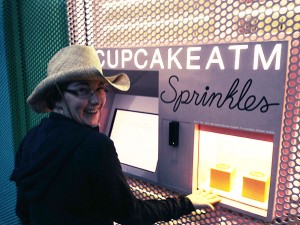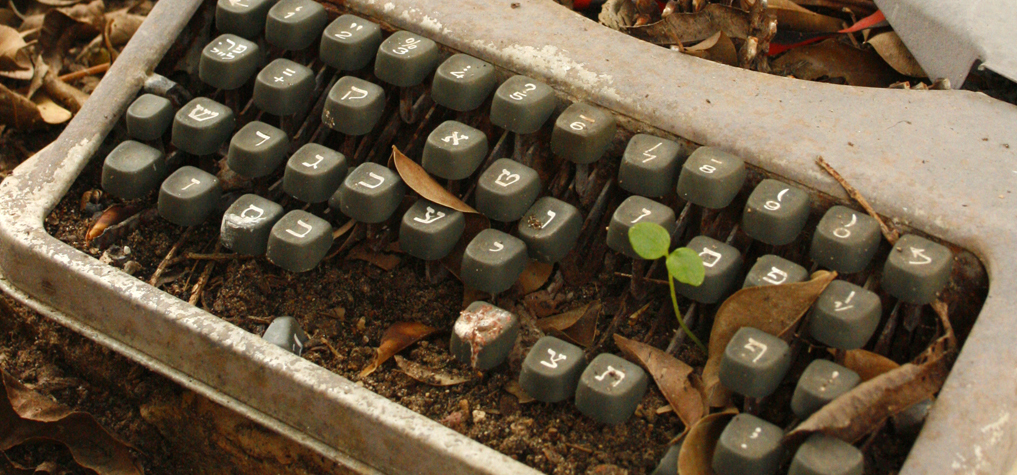There was a week in the summer of 2010 when I had two life-changing conversations. In both of these conversations, each had with different people, and for different reasons, and ostensibly on different topics, the people I was speaking with suggested that perhaps lil ol’ me would be more successful and make more money and be more awesome if I acted, well, more like them.
They didn’t say it like that, of course. People don’t. When well-meaning people want to give advice, they tend to simply paint a picture, and it’s only if you look at that picture from a certain angle that you realize they have painted a picture of themselves.
Up until that time, I was following the very specific content marketing strategy of write when you are possessed of the urge to say something and publish it soon after. That resulted in between four and five blog posts a week most weeks, and sometimes there would be a week or so in which I had nothing to say, during which I didn’t write anything.
The people I spoke with thought that I should be more strategic.
They thought I should write blog posts that were designed to link to other blog posts, or to products, or services. They thought I should custom create blog posts purpose built to give opportunities for search engine traffic, “link bait”, and virality on social media.
This is good advice, actually. It’s certainly the advice I give when people ask me how to be more strategic with their content marketing. It’s the advice I give when people come to me asking for help. It’s the advice I give when people are starting from nothing and want to create something “the right way” from the start.
Like I said, it’s good advice. It just wasn’t great advice for me.
See, I wasn’t looking to get more strategic with my blog posts. I wasn’t looking to “optimize” or “take it to the next level” or “play a bigger game”. I had always found blogging to be one of the most rewarding activities I could possibly imagine. It was fun, and it made me smarter, and it helped me think, and it helped me grow.
Doing it my way got me into the Technorati Top 1000, meaning that, for a time, this was among the 1000 highest traffic blogs on the internet. (That honor, in tandem with two crisp American dollar bills, will get you a tall Pike Place blend at Starbucks, but still. It was good to know that I was good at something.)
What was it Toby Keith said? “A sucker punch came flying in from somewhere in the back”?
These conversations came out of the blue. They came from colleagues I admire. They came while we were supposed to be talking about something else, something nice. And the shock of them, the surprise of them, the “yes, that little blog you have is nice and all, but perhaps you should be a tad, I don’t know, manlier? ” condescension of them, well, I folded. I figured these guys must be right. Anything I had attained must have been in spite of myself, and if I wanted to go anywhere in life, I’d better start acting like a grown-up.
Unsurprisingly, when I went to the keyboard, I didn’t know what to write. When the only dictate is “whatever you do, don’t act like yourself”, it’s tough to figure it out. And I stayed that way for four years.
In the meantime, I have written. I’ve written for work – the classes and the emails and the sales copy. Over two million words, actually. But nearly none of them have been mine, and nearly all of them have been a struggle.
Sure, sometimes I would catch a groove and forget to obsess. Sometimes I would be on a deadline and didn’t have time to dwell. Sometimes I would drink wine and get angry and write what I damn well felt like, mentally hating the two of them the whole time.
But most of the time, what I had once loved, I’d grown to hate.
Which brings us to this summer.
This summer, I had two more conversations, one with a student, and one with a colleague.
The student emailed me to ask if she could write a certain kind of content in her newsletter. In her PS she said she hoped I’d say it was okay, because “that kind of thing would be a blast to write.” And I wrote back and said, “Go ahead. If it would be a blast to write, it will be a blast to read.”
(Hmmm. Physician, heal thyself?)
And then I talked to a colleague. I said I didn’t know what to put on my blog, and I hadn’t for years. We talked for a long time. He asked questions. I explained the problem. He thought for a while, and then he likened the whole thing to cupcakes.
 He said, “Remember that cupcake we got out of the ATM in Beverly Hills? Remember how it was perfect?”
He said, “Remember that cupcake we got out of the ATM in Beverly Hills? Remember how it was perfect?”
“Even if it wasn’t perfect, I still would have liked it. If it had been a little less moist, or it had been carrot cake instead of red velvet, or if it had less icing or, hell, no icing. When someone presents you with a cupcake, and it’s even a little bit good, your answer is not ‘Gee, I wish it was different.’ Your answer is ‘Sweet! A cupcake!’ You’ll even take a brownie, or a cookie, or a brownie with icing, or a cookie with brownie-flavored icing. You don’t care. You’re just happy you got a cupcake.”
“Maybe it’s the same with your blog. Maybe you don’t have to be a certain way. Maybe you can just make cupcakes.”
And so I tried. I tried to write even though I’d had writers’ block for four years. I tried to write myself up some cupcakes.
It was awkward. It was wooden. It was tentative and hesitant and SO not the same as it used to be. It felt like touching a lover after a four-year dry spell full of nasty silences and not very casual disregard. But I did it. And here we are.
Between four years ago and now, other well-meaning people have tried to give me advice on how to beat my writers’ block. It’s become a bit of a joke in the classes I teach. People come onto our Q&A calls and ask how my book is going, and we all laugh.
The advice people give about writers’ block can generally be paraphrased – or quoted verbatim – as “just write”.
I would ask what I should write, and they would say just write. I would ask how to start, and they would say just write. I would say I don’t know how, and they would say just write.
They were correct, of course. That’s exactly what I should have done. But their advice never held, it never stuck, because, well, I don’t know why. I wanted it to work. I just needed more, I guess.
You don’t understand, I would think. I can’t, because I’m stupid.
You don’t understand, I would think. I can’t, because I’m weird.
You don’t understand, I would think. I can’t because I’m loud and I’m brash and I swear too much. I can’t because those big, strong men I admire and respect told me I was doing it wrong.
And I suppose what I would have wanted was for somebody to take me by the shoulders and say this:
“Write like it never happened.”
“Don’t let them get you. Don’t let them break you. Don’t let them take the vitality and the fire and the sparkle that is you and sanitize it into a beiged-down version.
"Don’t change just because it makes other people feel safer. Don’t let them tell you that you would be perfect if you just weren’t so… you. Don’t let them take you away from everybody else who likes you just the way you are.
"I know it will be hard, and I know it won’t be the same, and I know you’ll doubt your every word for a while, but it will get better.
"Do you remember when you were little, and you swore you would never let anyone break you down, no matter how hard they tried? That small person inside of you is counting on you to make all her dreams come true. That small person said that one day, she would write and people would read, and that mess of a childhood would be transformed into something better. Nobody can make it okay for that small person but you.
"Write like it was ten years ago and nobody had told you that you couldn’t do it. Write like it was possible. Write like you had hope, and write like you had dreams, and write like there are millions of people out there waiting to hear what only you can say.
"Write like you did before it ever occurred to you that there might be anyone who wanted you to be different.
"Outrun it. Outrun the feeling that they might be right. Outrun it, outwrite it, and drown it with voices of love and support and admiration and high fives.
"Listen to your children who believe you can do everything and that Mummy is the wisest, strongest, prettiest person in the whole world. Put your trust in the ones who know you and love you and never want you to change. Write and write and write and write and write, no matter what, write.
"It. Will. Get. Better.”
I think that’s what I would have wanted to hear.
So just in case that’s what you want to hear, and you need somebody to say that to you, I’ll say it to you now:
Write like it never happened.
![]()
Naomi Dunford's first piece of published writing was a review of Coneheads for the local paper. She was 12. Her greatest writing related achievement is getting 104% on an essay about "The Fatal Flaw In King Lear", a play which she has heard is very moving. She writes Morning Pages about once a year.
She is a business consultant, writer, and blogger who started her company, IttyBiz, in 2006 and has been featured in numerous books you probably own but have not read.
![]()



 Note from Jenna: This is a guest post from my friend, writer, and favorite business consultant, Naomi Dunford.
Note from Jenna: This is a guest post from my friend, writer, and favorite business consultant, Naomi Dunford.



